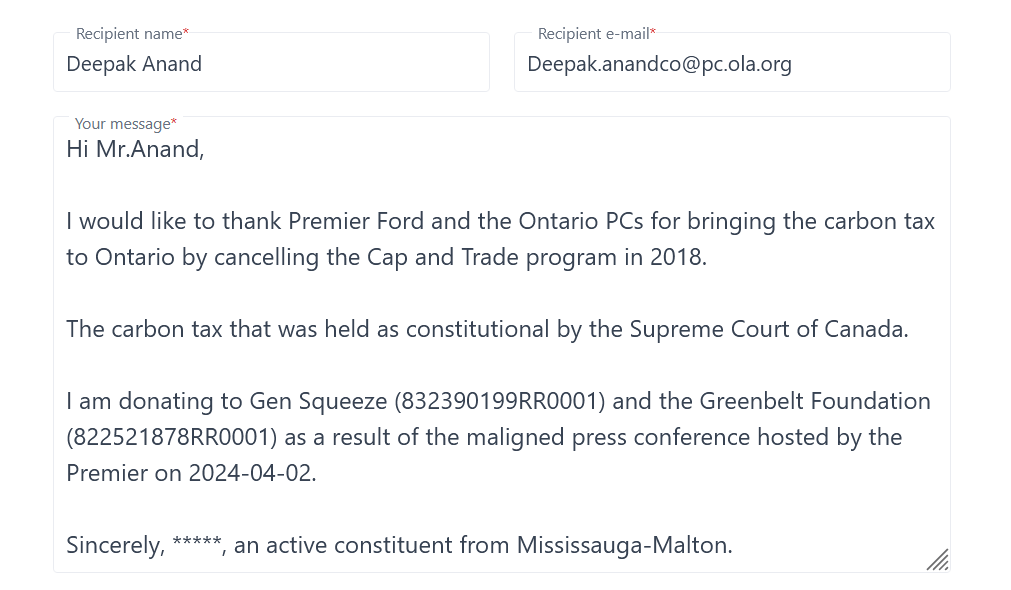The key to unlocking political parties like these is proportional representation. Some electoral systems meeting this criteria:
Nobody is disputing that the wealthy consume more than the poor.
We are disputing your claim that the wealthy do not pay their fair share of greenhouse gas emissions. Please provide evidence to substantiate your claims.
Thank you for this point. This is important to highlight in the age of carbon pricing misinformation.
Do you have evidence indicating that corporations and the wealthy do not pay their fair share of the carbon emissions they generate?
I am not denying that the upper class may pay a lesser percentage of their wealth. What I am saying is that even if it is true, this is not relevant to the discussion on carbon pricing because that is not the objective in the first place.
The point of the carbon pricing is to mitigate the effects of the climate crisis.
Wealth redistribution is well deserving of its own discussion. However, on its own wouldn't be a very effective tool to address the climate crisis as it does not hit the core of the issue, which is greenhouse gas emissions.
Under the current carbon pricing scheme, there is no such thing as purchasing of carbon credits. This might be the case under a cap and trade system, which currently only exist in places like Quebec and California (and formerly Ontario). Additionally, if corporations were exempt, there would be no need to buy carbon credits.
There are special areas such as home heating where there is a temporary hiatus on the carbon pricing.
The carbon tax rebates apply uniformly. But remember that carbon pricing punishes those who heavily rely on carbon based fuels (e.g. people with multiple vehicles, homes, etc).
Carbon pricing is not intended to redistribute wealth. So the point about the upper class paying a lesser percentage of their wealth is not relevant and we also don't have evidence of this.
Do you have evidence that the carbon pricing scheme as implemented disproportionately affects the middle/lower class? I would legitimately like to know. Keep in mind that while it's often referred to as the carbon tax, there is also the carbon tax rebate that goes hand in hand with the implementation. The Parliamentary Budget Office (PBO) did an analysis and found the following:
Relative to disposable income, our estimates of household net carbon costs continue to show a progressive impact that is, larger net costs for higher income households.
As for the wealth of the economists that signed the letter, unless there is evidence of such, please don't make claims you have not substantiated. I look forward to healthy, civil discussion.

Join the conversation at !fairvote@lemmy.ca.
The only viable long term solution is proportional representation (PR). Some electoral systems meeting this criteria:
Canada needs to stop believing that PR requires a referendum. The only people pushing a referendum are those with ulterior motives or are misinformed.